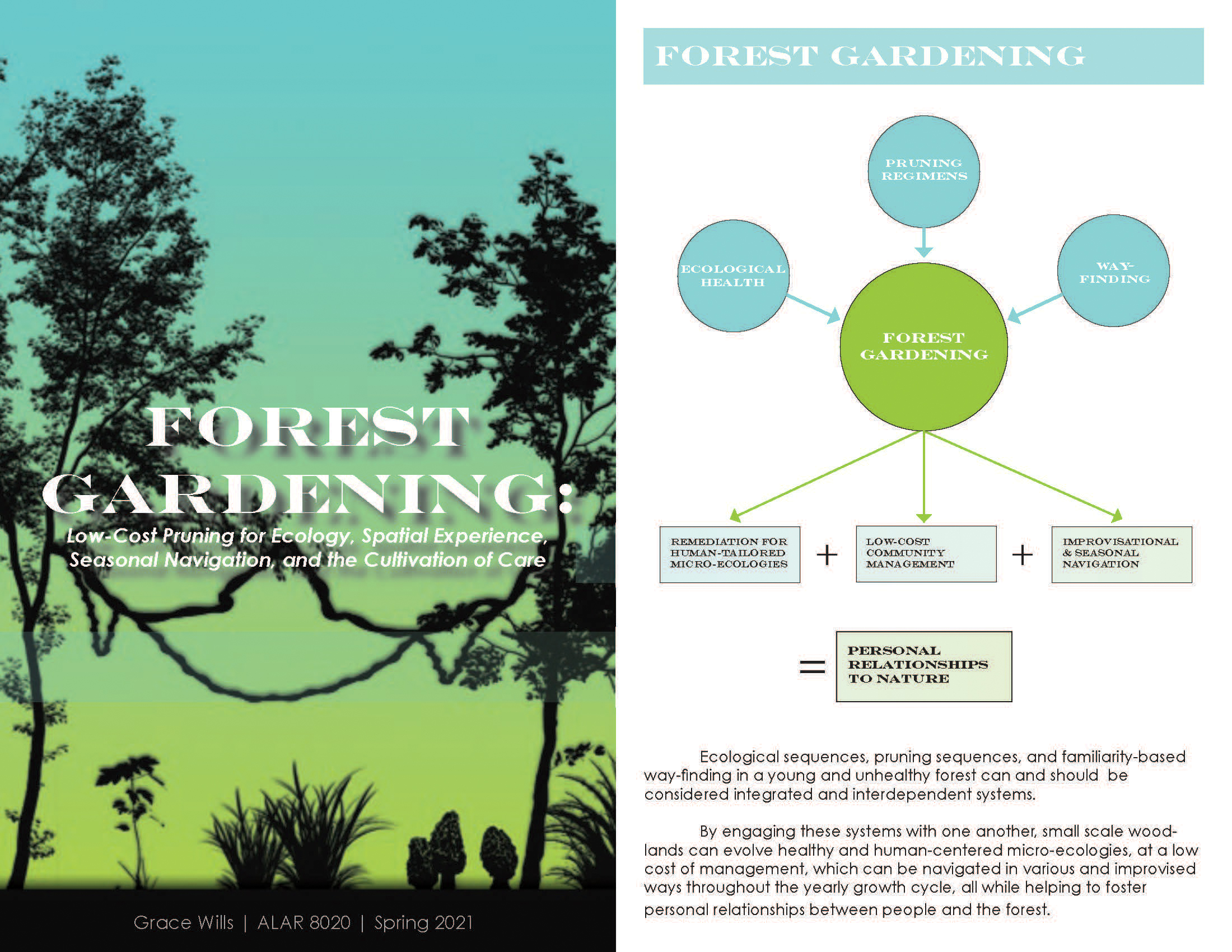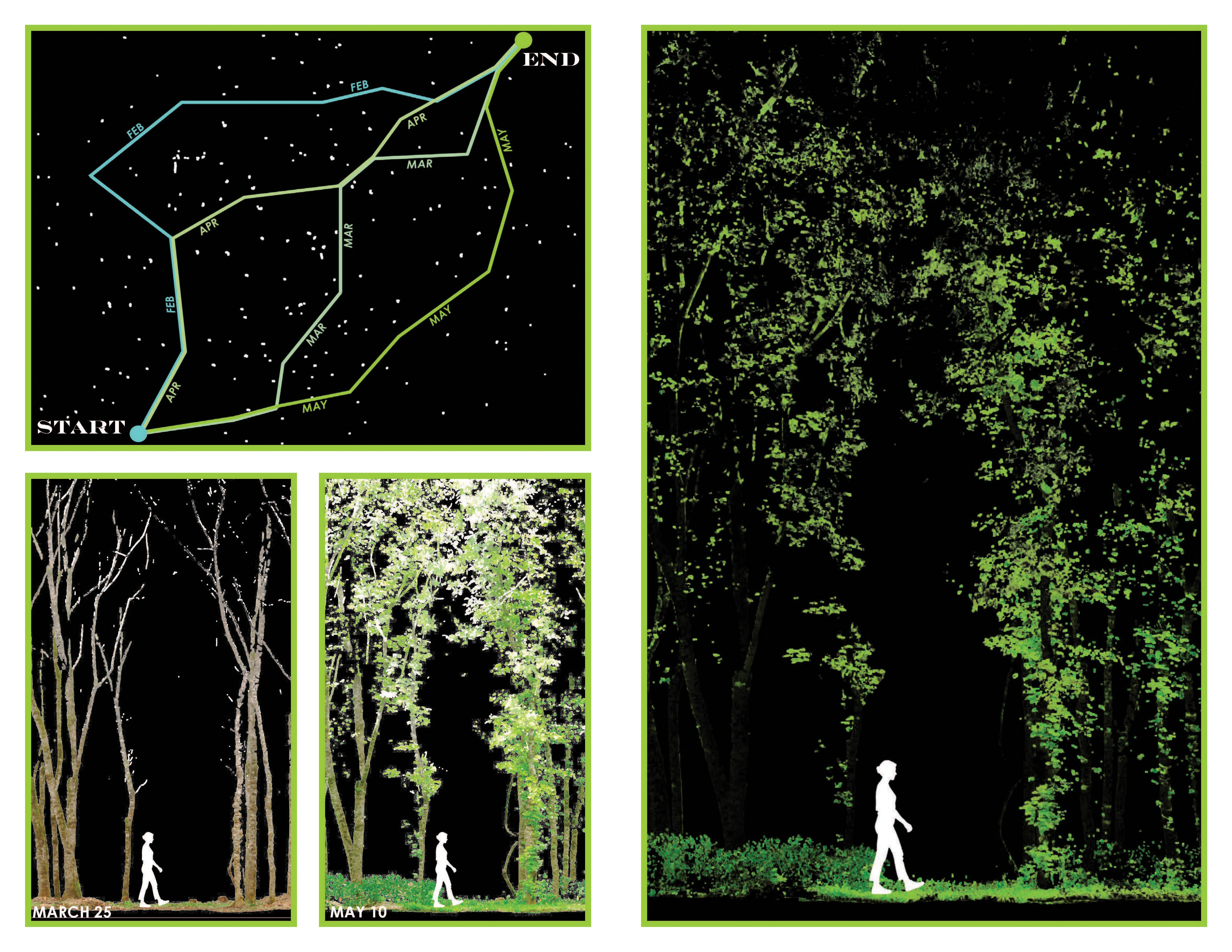Grace Wills
FOREST GARDENING
A
Low-Cost Pruning Regimen for Ecology, Spatial Experience, Seasonal Navigation, and the Cultivation of Care
Thesis: Ecological sequences, pruning sequences, and familiarity-based way-finding in a young and unhealthy forest can and should be considered integrated and interdependent systems. By engaging these systems with one another, small scale woodlands can evolve healthy and human-centered micro-ecologies, at a low cost of management, which can be navigated in various and improvised ways throughout the yearly growth cycle, and help to foster personal relationships between people and the forest.
Positioning: Often forest management focuses on one of three things: management for timber production, management for ecological health,or trailblazing for recreational use of the forest. The latter is human focused, and often includes expensive infrastructure installation. And necessarily, navigation decisions are explicitly made in advance of the arrival of the navigator, and sometimes with disregard for the ecological health of the woods.
But in wild-growth forests, people are still able to navigate through a sequence of immediate, experience-based decisions. Understanding how people make decisions when navigating unmarked terrain can then inform a way to curate those decisions, via simple and inexpensive pruning techniques that also serve to both bolster forest health and foster a more personal relationship between the casual explorer and the wood.
In new-growth forests or sites of environmental remediation, particularly those in close proximity to human populations (like city parks or former industrial sites), approaching the forest as a garden by making editing decisions which are both intuitive and very much at the human scale, can allow for greater legibility of spaces and the cultivation of care between human users and the “wild.” And that legibility will also change over time, with changing seasons and levels of familiarity, so these curated pruning techniques can allow more room for the flourishing of variations of experience, which are inhibited by traditional trail-blazing methods.







